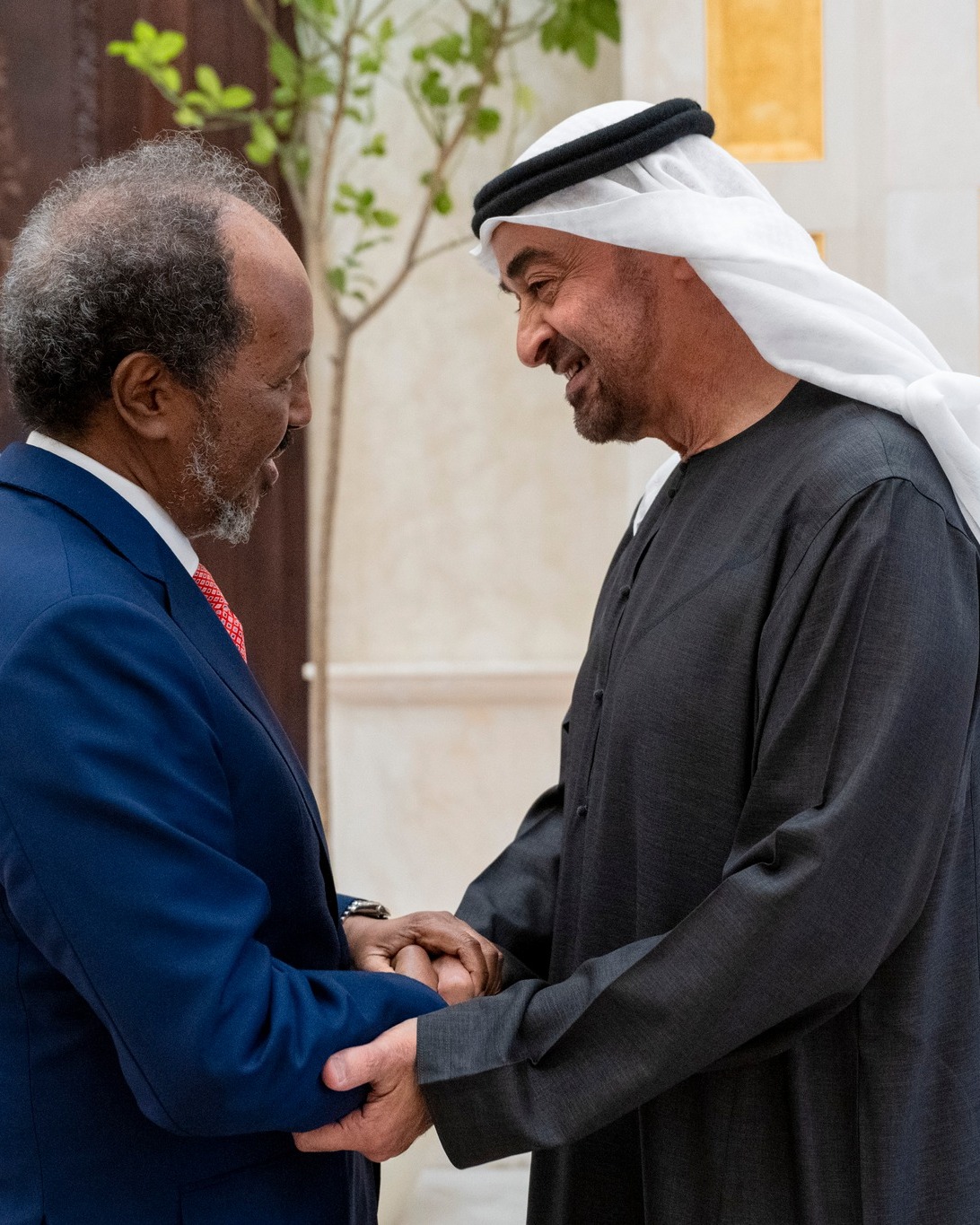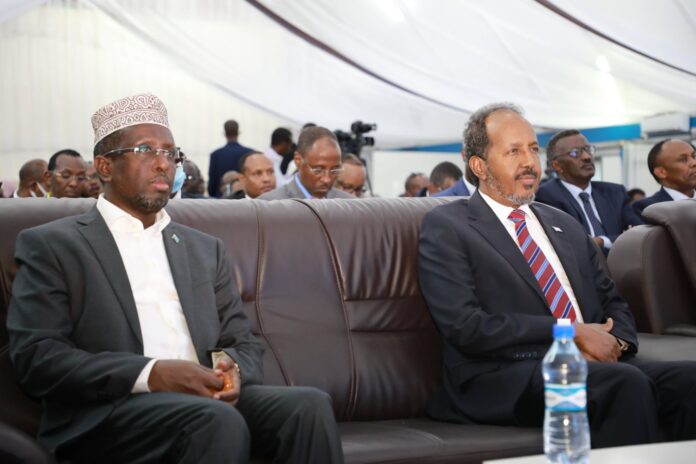MOGADISHU, Somalia — When governments fear political defeat, they don’t pursue reform—they deflect. That’s exactly what’s unfolding in Mogadishu, where senior federal officials, including Prime Minister Hamza Abdi Barre, have launched sweeping accusations against opposition leaders, alleging they are promoting a so-called “foreign-funded agenda.”
These accusations are primarily directed at the United Arab Emirates, a former strategic partner now cast by the current administration as a geopolitical adversary.
But here’s the crux of the issue: no evidence has been presented. Not a single document, bank transfer, or verifiable link. Just a barrage of insinuations, false scapegoat and politically convenient soundbites.
For a government that claims to defend Somalia’s sovereignty, this kind of reckless, baseless rhetoric exposes more about its own insecurities than it does about its opponents. These are not principled warnings—they are political distractions.
This isn’t about foreign influence. It’s about domestic pressure. Opposition leaders—many of them former officials, civil servants, and grassroots mobilizers—have returned to Mogadishu to form a united front.
Their timing is no accident. President Hassan Sheikh Mohamud’s government is now past the halfway point of its term, and public patience is wearing thin.
The opposition isn’t calling for revolution. They’re calling for inclusion, transparency, and a credible roadmap toward elections in 2026—something Villa Somalia has so far failed to provide.
Instead of engaging with these demands, federal officials have reverted to a tired strategy: label your critics as foreign agents. Manufacture fear. Weaponize patriotism. But in the absence of facts, these tactics fall flat.
UAE as a Convenient Target
The government’s diplomatic rift with the UAE has been quietly growing for over a year, especially as Mogadishu leans more heavily on Turkey and Qatar.
The Emirates—once seen as key allies—are now portrayed in official messaging as meddlers, despite their continued humanitarian and development footprint in Somalia.
Let’s be honest: every administration in Villa Somalia, including Hassan Sheikh’s, has relied on external partners. Military support, budgetary aid, and diplomatic backing all come from abroad including but not limited, to UAE.
So why is foreign engagement only problematic when it doesn’t pass through the gates of Villa Somalia? This selective outrage is not about sovereignty—it’s about power.
What the Opposition Really Represents
Contrary to the government’s narrative, this growing opposition bloc isn’t foreign-funded—it’s publicly fueled. It reflects the frustrations of ordinary Somalis tired of political theater and eager for real accountability. It channels calls for meaningful decentralization, clarity on federalism, and an electoral process free of manipulation.
Labeling such calls as externally driven is not only dishonest—it’s dangerous. It undermines trust in democratic processes and sends a chilling message: dissent equals betrayal.

But Somalis are not naïve. They’ve lived through decades of manipulation and conflict. They can spot political projection when they see it. What the Opposition Really Represents
Contrary to the government’s narrative, this growing opposition bloc isn’t foreign-funded—it’s publicly fueled. It reflects the frustrations of ordinary Somalis tired of political theater and eager for real accountability. It channels calls for meaningful decentralization, clarity on federalism, and an electoral process free of manipulation.
Labeling such calls as externally driven is not only dishonest—it’s dangerous. It undermines trust in democratic processes and sends a chilling message: dissent equals betrayal.
But Somalis are not naïve. They’ve lived through decades of manipulation and conflict. They can spot political projection when they see it.
A Government Losing Its Moral Ground
In accusing its opponents without proof, the federal government is not defending national unity—it is eroding institutional credibility.
You cannot build a democracy by silencing opposition, stoking fear, and calling every critic a traitor. If the administration truly believes in its mandate, it should welcome political competition—not criminalize it.
If it fears the opposition, it should ask itself why. Because when you attack without evidence, people start to wonder what you’re trying to hide.
Final Word: A Fight for Somalia’s Future
This moment is bigger than party politics. It’s about whether Somalia chooses a path of open democracy—or a closed loop of paranoia and power consolidation.
The government’s latest smear campaign is a sign of weakness, not strength. It knows it cannot win on merit, so it resorts to dirty tricks. The opposition must remain steadfast, and the Somali people must see through these tactics.
The road to 2026 will be fraught with government-backed disinformation and intimidation. The 2026 election will not only test candidates—it will test whether Villa Somalia is willing to let the people decide.
The opposition’s movement must be rooted in the national interest, not foreign agendas—and no amount of propaganda will change that. If the opposition stays united and the public remains vigilant, Somalia may yet see a democratic transition—as demanded by its own citizens.
The clock is ticking. And smokescreens won’t stop the reckoning.
_


